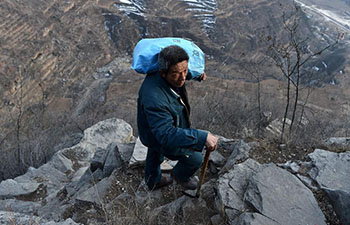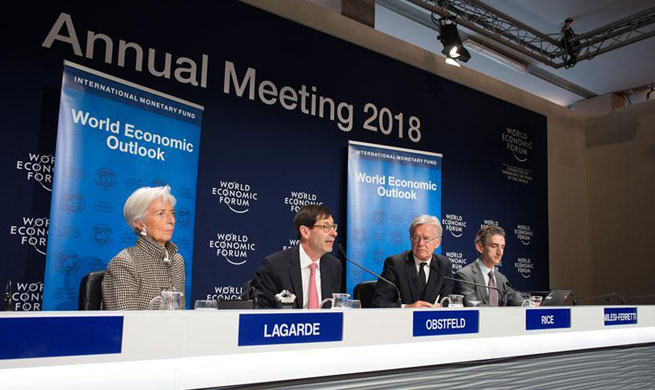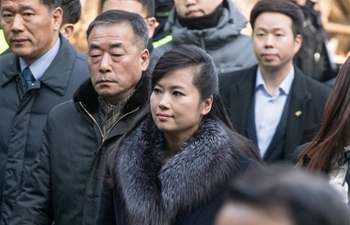TOKYO, Jan. 23 (Xinhua) -- The Bank of Japan (BOJ) announced Tuesday it would maintain its aggressive monetary easing policy as it continues to grapple to achieve its lofty 2 percent inflation target.
Following the conclusion of the central bank's two-day policy board meeting, the BOJ opted to keep its deposit rate unchanged at minus 0.1 percent and the 10-year yield target at around zero percent.
The BOJ also opted to maintain the level of purchases of exchange-traded funds (ETFs) among other assets.
The central bank earlier this month spooked markets by unexpectedly reducing its procurement of long-term government bonds during a daily market operation, which caused long-term interest rates and the yen to jump.
This prompted some analysts to speculate that the BOJ might have been moving towards tapering measures in line with other major central banks.
But with inflation still well below 2 percent, economists said the bank has little option other than to continue with its massive easing measures, despite an improving economy.
Japan's core consumer price index, with the exception of fresh food prices, increased 0.9 percent on year in November last year, marking the 11th straight month of increase, but if energy prices are also excluded, consumer prices increased a mere 0.3 percent in the recording period.
The figure is a long way short of the central bank's target, delayed multiple times, of achieving an inflation rate of 2 percent.
Despite an on-year rise in wholesale prices, however, the BOJ is still struggling to convert the effects into a significant rise in inflation as business confidence remains low with companies concerned that hiking their prices will repel consumers and adversely hit their bottom lines.
Consumers and households, amid stagnant wages and concerns for Japan's economic outlook, despite a fairly solid track record recently, have continued to tighten their purse strings, economists have highlighted.
On Jan. 16, Japan's most powerful business lobby, known here as Keidanren, urged its member companies to implement a 3 percent pay hike, as part of its overall guidelines for 2018 spring wage negotiations, which kicked off this week.
Indicative of continued deflationary pressure in Japan, Keidanren called for pay hikes not just through scaled increases, but also through bonuses and other incentives in a bid to stimulate consumption.
"We will contribute to Japan's full exit from deflation and further expansion of a virtuous cycle in the country's economy by making additional efforts to improve labor conditions," the business lobby said in its report.

















